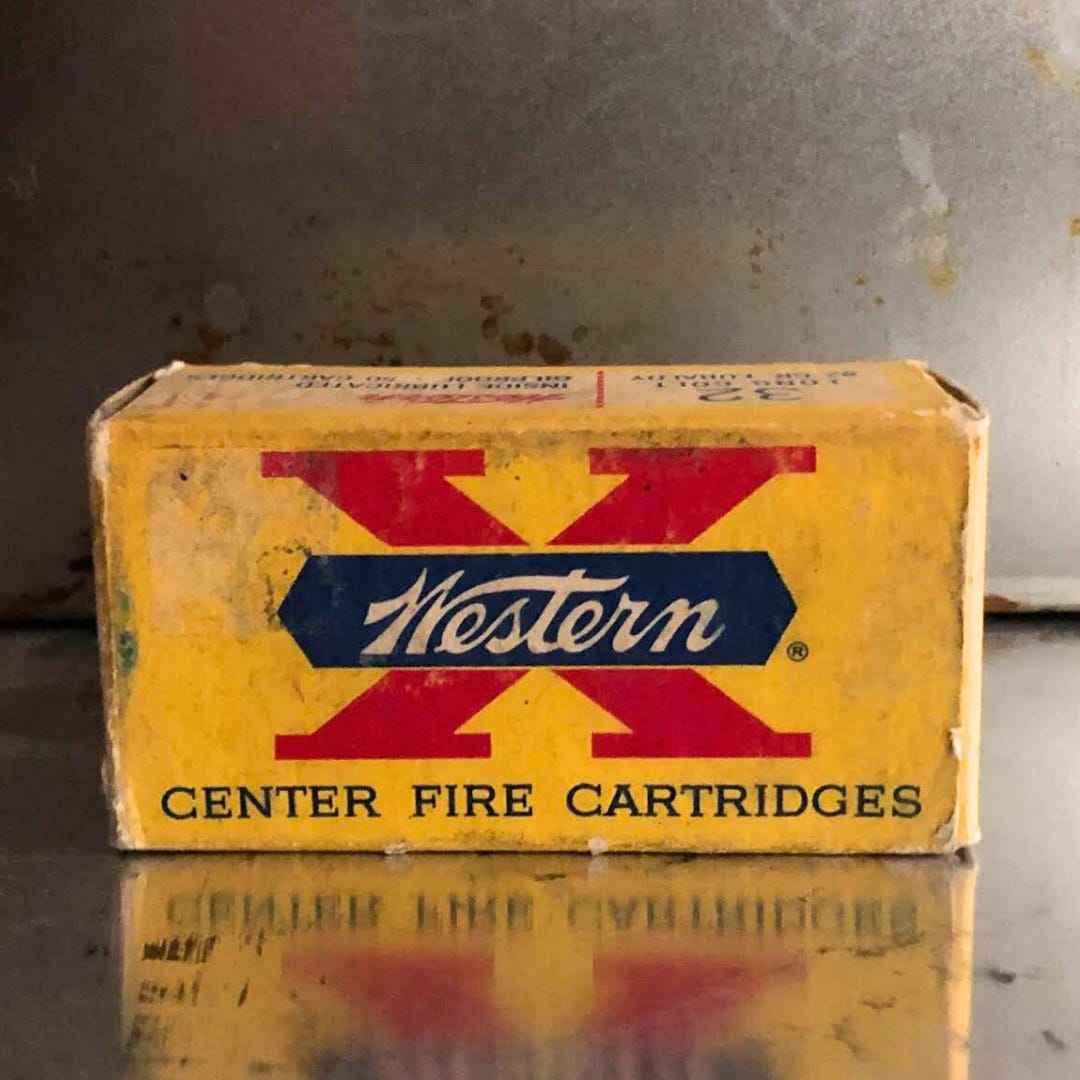MY FATHER'S BULLETS
“The way he described it, he was so overcome with patriotic feeling for his new homeland that he immediately joined the U.S. Army Reserve….”
The gun was a Colt .32. My father’s service revolver, he explained. He brought it out—what, twice in my entire childhood? But those viewings seared themselves into me. To my young eyes, merely holding the gun changed my father into a different man, a man who’d seen and done things. Hard to square with the man I actually knew.
Soft-spoken and clumsy—he couldn’t go near a body of water without falling in or managing to lose his swim trunks—he stood out from the other fathers, and not only because he was Jewish. He just wasn’t a regular dad, as I wasn’t a regular boy. I was painfully lonely; he was painfully gone. He was an attorney working mainly in Europe, but even at home he was barely there. Once, tormented by a middle-school bully, I asked him what to do. He looked so stricken, it felt like he was the one in need of advice. “Avoid him,” he finally said. “If all else fails, a karate chop between the shoulder and neck can be effective.” I never asked again.
He had emigrated from Hungary in 1948, barely escaping before the Iron Curtain clanged shut. The way he described it, he was so overcome with patriotic feeling for his new homeland that he immediately joined the U.S. Army Reserve, winning his officer’s commission just in time to catch the end of the Korean War. He was a tank commander, hence the service revolver and his mild hearing loss.
The hearing loss was the result of a shell that misfired, injuring the tank crew. I was 9 or 10 when he told me this, young enough to still be playing soldiers. But over time the story changed. In one version, it was a pressurization accident aboard a transport. In another, some G.I.s were goofing around and tossed a grenade into a pond. Somehow I never asked him for clarification. But after he died, in 1997, I wrote to the V.A. to find out. The records did note a slight hearing loss, but it definitely hadn’t come from combat: My father, it turned out, had been a military lawyer. No grenade. No tank. No Korea.
Why the tall tales? It would take me years to grasp, but I think it began in the late 1930s. My father was a schoolboy then, a soft-featured Jewish boy in a country and a culture that had entered Hitler’s orbit. I’d actually visited his school with him, in 1996, when—knowing he was terminally ill—he took me to Budapest on a farewell tour. A rainy morning. The school hallways an underlit, institutional green. In his sodden trench coat, he looked even frailer than usual. He stood in silence, his face unreadable. He’d gone somewhere deep inside himself.
It wasn’t until I returned to Budapest several years ago that I finally learned what my father must have been remembering. On that second visit, two decades after his death, his cousin told me that day after day on the school playground, the other kids would pile on and pull down my father’s pants to check if he was “still Jewish.”
Which brings me back to the gun. I know now that it almost certainly wasn’t Army-issue. But even if it wasn’t a service revolver, it was, I think, a revolver that performed a service. I imagine that having it around gave my father comfort, the same kind of comfort he took in telling lies about commanding a tank. As far as I know, he never fired the gun. Nor did I. When we put his home up for sale, someone found it unsecured and walked off with it during an open house. And so these bullets are just as useless as they ever were, but somehow I can’t bring myself to let them go.
—Seth Lorinczi
Seth Lorinczi’s first book, Death Trip: A Post-Holocaust Psychedelic Memoir, will be published by Spiral Press Collective in May and can be pre-ordered here.
For a different reading experience, The Keepthings’ stories can also be read in their entirety on Instagram @TheKeepthings.
Have a story to share? Please see the complete submission guidelines, including photo guidelines, at TheKeepthings.com.








Great telling of a complex story. Keep writing.
Wow, this was deeply moving and heartbreaking. As I’m sure it must’ve been for you. I can see why you hang onto the bullets. 💕